Economy - ENA English
Economy
Production-driven Trade Strategy Enables Ethiopia to Boost Export Destinations, Competitiveness
Apr 1, 2025 297
Addis Ababa, April 1, 2025 (ENA) --- Ethiopia has achieved tangible results in enhancing its export destinations and competitiveness by implementing a production-driven trade strategy, Trade and Regional Integration Minister Kassahun Gofe told ENA. Ethiopia will play its leading role in strengthening intra-African trade by commencing soon a pilot African Continental Free Trade Area (AfCFTA) project in selected countries, he added. The minister told ENA that Ethiopia has achieved significant results in export diversification and competitiveness. Recalling that Ethiopia's export revenue was 2.6 billion USD in 2017/8, Kasahun stated that 4.5 billion USD has been earned in the first eight months of 2024/5 alone. The activities carried out in export productivity, implementation of the macro-economic reform policy and free-floating exchange rate systems have enabled significant changes, he pointed out. Although Ethiopia's potential is much greater than this, the minister stressed that the promising results being registered are encouraging taking into consideration the red tape that constrained the trade sector in the past, he elaborated. The minister, who recalled the annual export revenue from coffee production to be 700 million USD, stated that over 2 billion USD is expected this Ethiopian fiscal year. Endeavors carried out in developing and producing quality coffee plants in connection with the Green Legacy Initiative have made a significant contribution to its competitiveness. Kasahun emphasized that Ethiopia's export competitiveness is growing as a result of its pursuing a production-driven trade strategy. According to him, Ethiopia's export revenue is low in terms of its Gross Domestic Product, and the aim of joining AfCFTA and the World Trade Organization is to expand trade destinations. For him, it is necessary to strive towards making Ethiopia's export market predictable and competitive. The minister revealed that Ethiopia has finalized preparations to start the pilot AfCFTA project. He believes that AfCFTA is promising for Ethiopia because of the large-scale production of coffee, pulses, and other products.
Nation's Rising Floriculture, Favorable Business Climate Lauded
Apr 1, 2025 252
Addis Ababa, April 1, 2025 (ENA) --- Ethiopia is one of the very few countries that can produce flowers all year round, foreign firms heads noted. Agri Plast Kenya Limited Company Managing Director, Ertugrul Molulu, told ENA that Ethiopia is a very big country and the opportunities are also bigger than other countries. According to him, the highland alone is giving a lot of huge opportunities for the high quality agriculture productions. Compared to other countries, the logistics are also very good because here the air cargo and the others are supported by the government, Molulu said, adding that the cargo prices are much more convenient. The managing director believes that Ethiopia’s business will flourish in the years to come as the country and its population is very big with huge opportunities. Molulu also commended the Government of Ethiopia for supporting local farmers and international companies in creating a reliable business environment. With the population of about 120 million, the local demand is very high and export opportunities are very high, including the demand for expansion in the Middle East and the Gulf region, among others, the managing director elaborated. Derba Flowers and Mullo Farm Country Coordinator, Raphael Joly, said Ethiopia is one of the very few countries that has the possibility to produce flowers all year round, positioning it in a very favorable position. The flower industry, which started 20-25 years ago in Ethiopia, is developing quite well, he added. Joly noted that Ethiopia has a great potential in the flower industry and the macroeconomic reform being implemented by the government plays pivotal role. The country coordinator said Ethiopia has also a stronger advantage in terms of logistics, compared to other countries in the region. Moreover, the Government of Ethiopia is taking measures to improve the business climate in the country, and due attention is also given to export products in the country, of which horticulture is one of them. The floriculture sub-sector is among the top 3 forex earners in the country. In the last 8 months alone, the country has earned 366 million USD from the horticulture sub-sector.
Electric Buses Commence Operations in Addis Ababa
Apr 1, 2025 231
Addis Ababa, April 1, 2025 (ENA) --- Addis Ababa Mayor Adanech Abiebie has launched the operation of 100 electric buses, signifying the administration's renewed dedication to serve inhabitants. The fleet of electric buses, aimed at alleviating the city's transportation challenges, are environmentally friendly, capable of transporting a large number of passengers, and modern. Furthermore, the buses are designed to operate on dedicated lanes, ensuring faster service and reducing fuel costs, it was learned. During the launching ceremony, Mayor Adanech emphasized that the administration's procurement and deployment of the electric buses are intended to mitigate the public's transportation difficulties. The buses will significantly contribute to the government's efforts to combat climate change and reduce fuel consumption, she added. The mayor pointed out that the commencement of their services demonstrates the city administration's commitment to easing the public's transportation burdens. Transport and Logistics Minister Alemu Sime said the newly buses strongly support the government's initiative to expand green transportation. He also commended the Addis Ababa City Administration's efforts in enhancing the city's livability through transportation sector improvements, encouraging other city administrations to follow suit. Addis Ababa City Administration Transport Bureau Head Yabebal Addis stated that over 1,170 public transport buses are serving the residents daily. It was announced that the electric buses will provide free transportation services to residents across all city routes today.
Canada-Ethiopia Relations Growing Significantly Across Diplomatic, Economic Spheres
Apr 1, 2025 530
Addis Ababa, April 1, 2025 (ENA) ---- Canada's relationship with Ethiopia has been growing significantly, with increasing diplomatic, economic, and people-to-people ties, Canada’s Ambassador to Ethiopia, Joshua Tabah said. In a recent interview with ENA, Ambassador Tabah stated that the relationship is "mature, robust, and expanding" and has been built on strong people-to-people connections since diplomatic ties were first established in 1965. There are now over 50,000 Ethiopians living in Canada and around 5,000 Canadians in Ethiopia, further strengthening bilateral relations. A major sign of the growing relationship is the increase in direct flights between Addis Ababa and Toronto, with flights now operating daily, which facilitates easier connections between the two countries. “Bilateral relationship between Canada and Ethiopia is mature, robust and expanding. We first established diplomatic relations in 1965 and we've been building on that relationship every year since, it is a multifaceted relationship. At its core, it's about people and strong People to People ties. From the beginning, we've also been an important partner to Ethiopia. In terms of international development cooperation, we have expanding trade and commercial relationships as well.” In terms of economic cooperation, Ambassador Tabah highlighted that Canada's annual development support to Ethiopia exceeds 200 million USD and focuses on areas such as gender equality, agricultural productivity, and humanitarian aid. He also noted significant investments, including those by Allied Gold, a Canadian company engaged in a major gold exploration project in the Benishangul-Gumuz region. Furthermore, Canada's relationship with Ethiopian Airlines is growing, with Canada supplying aircrafts, flight simulators, and even ice wine for the airline’s flights. Ethiopia's exports such as coffee, handicrafts, and garments are also increasingly reaching the Canadian market. Ambassador Tabah emphasized the importance of the Canadian Chamber of Commerce in Ethiopia, which will play a crucial role in advancing trade between the two countries. “Our development cooperation in Ethiopia is our largest bilateral development program, with around 200 million USD invested in support of Ethiopian priorities regarding gender equality, access to livelihoods, agricultural productivity, economic empowerment, and also humanitarian assistance." On the issue of food security and sustainable development, Canada has been actively involved in Ethiopia’s efforts to increase agricultural production and promote gender equality in agriculture. Ambassador Tabah mentioned that Canada is committed to supporting Ethiopia’s humanitarian needs, particularly in times of conflict or natural disasters. Looking beyond Ethiopia, Ambassador Tabah who is also accredited to Djibouti and Sudan spoke about Canada’s growing engagement with Africa as a whole, noting that Africa has been more important for Canada’s foreign policy, trade, and development goals. Canada has released its first strategy for engagement in Africa, which emphasizes a peer-to-peer relationship with individual African countries and institutions such as the African Union. In addition, Canada has been supporting peace and security initiatives in Africa, particularly through the African Union Commission, and is making significant investments in technology and climate solutions in countries like South Africa, Nigeria, and Kenya. Ambassador Tabah also highlighted Canada’s support for Ethiopia's Demobilization, Disarmament, and Reintegration (DDR) process, particularly in the Tigray region. He emphasized that peace is essential for economic prosperity, and that DDR efforts are key to promoting stability and social cohesion. Canada continues to support Ethiopia in its efforts to host over one million refugees from the Horn of Africa, providing both financial aid through to organizations like the World Food Program and UNHCR, and resettlement opportunities for refugees needing protection. Through these efforts, Canada aims to build a stronger, more dynamic partnership with Ethiopia and Africa, supporting the continent’s development and stability while advancing trade, peace, and sustainable development goals.
HortiFlora International Trade Fair Opens in Addis Ababa
Apr 1, 2025 283
Addis Ababa, April 1, 2025 (ENA) --- International Floriculture and Horticulture Trade Fair has opened at the Millennium Hall today with the theme "Horticulture for Sustainable Ethiopia". Opening the three -day Trade Fair, Minister of Agriculture Girma Amente noted that the government of Ethiopia is taking measures to improve business climate in the country. The horticulture sector is one of the priority areas which has registered encouraging achievements in the last eight months, Girma said. He stressed the need to capitalize and consolidate the success already achieved in the sector. For the country to benefit more from the sector, it needs a shared commitment to address the bottlenecks and creating synergy in the supply chain, he further stated. Cognizant of this, the government is taking policy and sectoral reforms to create a better enabling environment for the private sector operators, the minister added. All stakeholders need to work in unison to support the various local and international initiatives towards ensuring sustainability, the minister further pointed out. He reaffirmed that the government will continue to work relentlessly and create a better business climate in close collaboration with the Association, development partners and stakeholders. Addressing the trade fair, EHPEA (Ethiopian Horticulture Producers Exporters Association) Chairman Nega Mequanint for his part said this event is not just a trade fair, but a strategic platform. The recent achievement of the sector has resulted from strategic engagement, government policy support, collaborative industry effort, and especially strong commitment and dedication of members and the industry at large, he stated.
China-Africa Development Fund Keen to Participate in Ethiopia’s New Airport Project
Apr 1, 2025 701
Addis Ababa, April 1, 2025 (ENA) ---- Ethiopia’s ambassador to China, Tefera Derbew engaged in a productive discussion with Yu Zhuorui, Vice President of the China-Africa Development Fund (CAD). They addressed various mutual cooperation opportunities and concerns shared by both countries. The Ambassador emphasized the necessity of strengthening existing partnerships and diversifying investments, particularly focusing on projects such as the new international airport and highlighted recent developments from Ethio-telecom and Ethiopian Investment Holding Groups. He outlined the economic development trajectory of Ethiopia and invited CAD Fund to explore investment opportunities within the nation. Yu Zhuorui, on his part expressed gratitude to the Ambassador for facilitating the meeting, noting that it would enhance the bilateral relations between the two countries. The Vice President underscored the importance of joint consultations to foster shared development cooperation and explore new avenues for collaboration, expressing interest in participating in the new airport project. He revealed that representatives have been assigned to the branch office of CAD Fund in Addis Ababa. In conclusion, Ambassador Tefera assured that the government would extend all necessary support to the newly deployed staff of the China-Africa Development Fund. China-Africa Development Fund was established in 2006 as one of the eight policy measures proposed by the Chinese government during the Beijing Summit of the Forum on China-Africa Cooperation to promote practical cooperation between China and African countries. Its objective is to support and encourage Chinese companies to invest in Africa. With the initial scale set to be 5 billion USD, the fund was organized by CDB and started operation in June 2007.
Ethiopia Signs Two Financing Agreements with World Bank to Finance Education Transformation for Learning Operation
Mar 31, 2025 1434
Addis Ababa, March 31, 2025 (ENA)— Ethiopia has signed a Financing Agreement amounting to 50 Million USD in the form of a Loan from International Development Association Country Performance Allocations and a Grant Agreement of 46.367 million USD from the Global Partnership for Education Fund; in total USD 96.367 million with the World Bank (also acting as Grant Agent for Global Partnership for Education Fund). The agreements will support the Ethiopian government in increasing equitable access and improving learning outcomes in pre-primary and primary education, according to the Ministry of Finance. The funding further will focus on implementing an innovative professional development package for in-service teachers, particularly targeting pre-primary and grades 1-6 teachers of mother-tongue languages and mathematics. The program will provide strategic pre-service and in-service teacher training support aligned with the new curriculum. Additionally, it will enhance the capacity of current and prospective school leaders with a focus on female leadership and ensure the equitable provision of both print and digital teaching and learning materials tailored to the new curriculum. The Agreements underscore Ethiopia's commitment to improving learning outcomes and increasing access to quality education, particularly in the pre-primary and primary levels, as part of its broader strategy to drive sustainable development in the country. Minister of Finance, Ahmed Shide and Country Director for Ethiopia, Eritrea, Sudan, and South Sudan, Maryam Salim signed the two Agreements on behalf of the Ethiopian Government and the World Bank, respectively.
Ethiopia’s Agricultural Reforms Yield Transformative Results: Minister Girma
Mar 31, 2025 537
Addis Ababa, March 31, 2025 (POA) -- Girma Amente, the Minister of Agriculture, highlighted that Ethiopia is entering a new era of transformation, fueled by the significant successes in the agricultural sector following nationwide reforms. Minister Girma, in an interview with ENA, stated that agricultural reforms have established a foundation for structural transformation. He noted the successful expansion of cluster farming, mechanized agriculture, and year-round cultivation, shifting away from rain-dependent practices, adding these initiatives have significantly increased production and productivity, driving a transformative period for Ethiopia. The Minister also stressed the importance of sustainable gains, citing the Green Legacy Initiative's role in promoting climate-resilient agricultural practices. Agriculture State Minister Meles Mekonnen and Disaster Risk Management Commissioner Shiferaw Teklemariam shared with ENA the transformative results of the agricultural reforms. State Minister Meles Mekonnen said that a ten-year strategic plan, in line with the national development plan is underway to enhance food security throughout Ethiopia. Meles reported a significant expansion in cultivated land, from 12.5 million hectares pre-reform to 20.5 million hectares during the Meher season. According to the state minister, this resulted in a surge in national harvests, from 293 million to 608 million quintals. “Wheat production also saw dramatic growth, rising from 48.5 million to 152 million quintals in the Meher season. The irrigated summer wheat program expanded from 3,500 hectares in 2011 to 3.5 million hectares, with a target harvest of 172 million quintals,” he added. Commissioner Shiferaw Teklemariam on his part emphasized that agricultural successes have enhanced the country's resilience to natural and man-made disasters using domestic resources. He also stated the nationwide implementation of a national policy promoting self-reliance in humanitarian assistance and these efforts indicated Ethiopia's commitment to building resilience and sustainable development amidst global challenges.
TOYO Solar to Expand Investment in Ethiopia with Additional Capital of 47 Million USD
Mar 31, 2025 514
Addis Ababa, March 31, 2025 (ENA) --- TOYO Solar has announced plans to expand its solar cell manufacturing capacity at the Hawassa Special Economic Zone (HSEZ) with an additional investment of 47 million USD. This will bring the company’s total investment in Ethiopia to nearly 110 million USD. This expansion follows the successful completion of Phase One of TOYO’s state-of-the-art facility in HSEZ, which is set to begin production in the second quarter of 2025. The new expansion is part of a broader 47 million USD investment, aimed at strengthening TOYO’s ability to meet the growing global demand for high-performance solar cells. Junsei Ryu, CEO and Chairman of TOYO, shared, “This expansion is a direct response to the strong global demand for solar energy solutions. The interest in our products, even before Phase 1 is fully operational, highlights the strength of our strategic vision and the key role Ethiopia plays in our global expansion.” The expansion will take place in Hawassa, a rapidly growing hub for Ethiopia’s renewable energy industry. The new facility, occupying an additional 28,000m² of space next to the existing site, is expected to be completed by July 2025, with full production scheduled to start by August. The established infrastructure at the site will help expedite the development timeline. Demonstrating its confidence in the Ethiopian market, TOYO also secured a major 150 million USD supply contract in November 2024, further cementing Ethiopia's position as a vital player in the global renewable energy sector.
Ethiopia’s Economic Diplomacy Bearing Fruit
Mar 31, 2025 450
Addis Ababa, March 31, 2025 (ENA) ---The Ministry of Foreign Affairs revealed that Ethiopia's efforts to strengthen economic diplomacy and explore new market destinations and investment opportunities are bearing fruit. The Ministry’s Director General for Economic Diplomacy, Ambassador Yohannes Fanta, told ENA that Ethiopia is working to attract foreign direct investment and explore new market opportunities through its embassies in various countries. The director general indicated that the country has a wide range of investment opportunities in agriculture, manufacturing, mining, energy infrastructure, digital, tourism and other sectors. The ministry, through its foreign relations efforts, is carrying out activities to make economic diplomacy more productive as its main duty, the Director General further pointed out. For Yohannes, the trade and investment forums undertaken in various countries in the current Ethiopian year have created good opportunities to promote Ethiopian products and to attract investment. Accordingly, activities have been undertaken to encourage investors from Eastern Europe, South America and Asia to invest in Ethiopia which is being effective. In addition to existing market and investment destinations, the effort to explore new market destinations has been also productive, he said, adding the activities are being carried out to export products and attract investment by assessing markets in countries in Africa where Ethiopian products were previously inaccessible, including neighboring countries. The AfCFTA will create a favorable opportunity for Ethiopia to take advantage of Africa's vast market opportunities as the business-to-business relations commenced with various countries through economic diplomacy.
New Campaign Launched to Mobilize 3 Million USD from Ethiopian Diaspora for GERD
Mar 29, 2025 1289
Addis Ababa, March 29, 2025 (ENA)— The Ethiopian Diaspora Service (EDS) in collaboration with Ethiopian missions worldwide, has launched a campaign to raise 3 million USD in support of the completion of the Grand Ethiopian Renaissance Dam (GERD). In an exclusive interview with ENA, Director General of EDS, Ambassador Fistum Arega stated that with a target deadline of July 7, 2025, the campaign has already made strong progress. According to him, some 500,000 US Dollars has already been mobilized within the first few weeks alone. Ethiopia is set to officially inaugurate the Grand Ethiopian Renaissance Dam (GERD) in the coming months, marking the near-completion of Africa’s largest hydropower project. Prime Minister Abiy Ahmed confirmed to the Ethiopian House of People’s Representatives last week that the GERD will be inaugurated within the next six months. The dam, which its construction began 15 years ago, has been exclusively financed by the Ethiopian public and the contribution of the country’s diaspora across the globe. To this effect, the ongoing resource mobilization campaign is being intensified and facilitated by all Ethiopia missions and embassies of the country around the world, he pointed out. The Diaspora Service is working closely with ambassadors, diplomats, and relevant stakeholders to achieve this goal, Ambassador Fistum explained. In this regard, Ambassador Fistum praised the diaspora community for their generous and ongoing contributions, both through financial support and advocacy. Particularly, Fistum acknowledged their steadfast opposition to foreign interference in the dam’s filling process, showing five years of solidarity with Ethiopia. A recent report shows that the Ethiopian diaspora has donated over 10 million USD to the construction GERD project over the past three years. The Director General appealed for continued support from the diaspora, stressing the critical role their contributions will play in the final construction phase of the dam. The Ambassador also commended the contributions of the Ethiopian Diaspora in other areas, including investment, tourism, knowledge transfer, national advocacy, and countering negative propaganda against Ethiopia.
GERD Excellent Example of Utilizing Own Resources, Regional Integration: Fiscus Int'l Consultancy and Research Organization
Mar 28, 2025 1213
Addis Ababa, March 28, 2025 (ENA)— The Grand Ethiopian Renaissance Dam (GERD) is an excellent example of utilizing one’s own resources and an enormous opportunity to realize regional integration, Fiscus International Consultancy and Research Organization Director Andrew Lawson said. In an exclusive interview with ENA, the director noted that there is no doubt at all that the Grand Renaissance Dam will provide energy for Ethiopia and will give the country the opportunity to export energy to neighboring countries. And connecting the region is significant for maintaining good relations with neighboring countries, which is going to be advantageous for the whole region, he said. According to him, this provides an enormous opportunity for the region as it opens the door for farmers and business people, among others, to cross borders and sell their products. “I think over time, we can see the region benefiting from the investments undertaken in energy here, which is an important example.” Lawson believes that the dam is an important example for Africa since it demonstrates that this can be done with own resources, and with the level of technical skill needed even for complicated engineering projects. The dam is a testament that it is not always necessary to go to other countries or international actors for financial and technical support, the director elaborated. “I think it's an excellent example” for other countries to develop their resources by their own expertise, he further added. Recall that Prime Minister Abiy Ahmed recently said the Grand Ethiopian Renaissance Dam is the pride of Africa wherein the country shows the spirit of perseverance and capability. He expressed his firm hope that this generation will continue replicating such historic projects in the years to come. The GERD is seen as a symbol of Ethiopia’s renaissance and a dam that also plays a crucial role in strengthening regional integration. The historic Grand Ethiopian Renaissance Dam (GERD) is expected to be inaugurated early next New Ethiopian Year.
Stakeholders Hold Workshop Set to Realize Ethiopia's Green Capital Market
Mar 28, 2025 966
Addis Ababa, March 28, 2025 (ENA) --- A workshop set to realize Ethiopia's green capital market through green bonds and carbon credits was held today. Ethiopian Capital Market Authority Deputy Director-General, Esayas Kassa, said on the occasion that the workshop makes a pivotal step in the journey towards establishing Ethiopian Green Capital Market, particularly through the development of green bonds and carbon credits. "We are deeply grateful for the ongoing technical expertise, policy engagement, and resource mobilization from our partners,” he added. According to a study presented at the workshop, climate change currently costs Ethiopia 1.5 percent of its GDP, a figure projected to rise to 5 percent by 2040. Despite these challenges, the country has a significant opportunity to leverage green finance, the deputy director-general stated. The country has successfully mobilized billions of Birr in climate financing and has set an ambitious target to reduce greenhouse gas emissions by 68.8 percent by 2030. Esayas pointed out that achieving this requires substantial investment, and the scoping study identifies promising green finance instruments. On her part, FSD Ethiopia CEO Hikmet Abdella underscored the urgency and potential of the initiative. Ethiopia’s economy, deeply reliant on agriculture, is highly vulnerable to climate risks. Yet in every challenge, there is an opportunity to grow, the CEO said. Hikmet further noted that Ethiopia’s climate resilient Green Economy Initiative and the Green Legacy Program demonstrate the country's commitment to sustainable growth. "To achieve our ambition of reducing emission by 68.8 percent by 2030, we need at least 316 billion USD. (Therefore) green financial instruments like green bonds and carbon credits are not just options. They are imperatives.” The scoping study, commissioned by the market authority with support from FSD Ethiopia, FSD Africa, and UNDP, and conducted by Genesis Analytics, has “confirmed the viability of green bonds and carbon credits for immediate implementation in Ethiopia,” the CEO noted. The workshop is a collaborative effort to translate vision into action and aims to build the framework, skills, and partnerships necessary to make Ethiopia’s Green Capital Market a reality. .
Ethiopia, Kenya Agree to Strengthen Cooperation in Customs Service
Mar 28, 2025 1172
Addis Ababa, March 28, 2025 (ENA) --- Ethiopia and Kenya have announced that they will work closely to enhance customs cooperation by focusing on efficiency at their shared borders. The two-day discussion between the Ethiopian Customs Commission and the Kenya Customs Authority in Addis Ababa has concluded. Ethiopian Customs Commissioner Debele Qabeta said that the countries have committed to further collaboration in streamlining customs services at the border. This will include expanding additional one-stop border service stations to improve efficiency, he added. Kenyan Customs delegation head, Moses Muya Ngati, on his part emphasized that global trade is growing rapidly and becoming more complex. Customs institutions of both countries should therefore work in coordination to meet these evolving challenges. The Kenyan delegation has also toured the new Africa International Convention and Exhibition Center, along with other development projects, according to the Ethiopian Customs Commission.
Stopover Tourism Plays Significant Roles in National Economy, Tourism sector
Mar 28, 2025 963
Addis Ababa, March 28, 2025 (POA) --- Experts expressed the crucial role of stopover tourism in Ethiopia's national economy and tourism sector, a key pillar of the nation's economic reforms. Stopover tourism, where travelers spend a few days in Ethiopia en route to their final destination, is being targeted through infrastructure development in Addis Ababa. Ethiopian Airlines Group, the Immigration and Citizenship Service, and the Ministry of Tourism formalized a collaborative agreement on 4 March 2025 to enhance Ethiopia's tourism sector. The signed MoU aims to create attractive stopover tourism packages for passengers transiting through Addis Ababa. Enku Mulugeta, Vice President of the Greater Ethiopia Tour Operators Association, highlighted Ethiopian Airlines' extensive network as a key driver for stopover tourism. He added that improved tourism corridors and Bole International Airport will establish Addis Ababa as a leading stopover destination. Haileab Meresha, owner of Pagume Festival Tours and Travel, emphasized that Ethiopia's rich heritage offers significant tourism opportunities. He believes stopover tourism can enhance the country's image and drive repeat visits, and urged stakeholders to create memorable experiences for stopover travelers. Hunde Kebede, Deputy Head of the Addis Ababa Culture, Arts, and Tourism Bureau, stressed Bole International Airport's crucial role in stopover tourism, citing its status as a major transit hub. He also emphasized that layover exploration boosts Addis Ababa's tourism revenue, emphasizing that new destinations, improved infrastructure, and enhanced transport corridors are creating a more welcoming environment for stopover visitors.
Ethiopia, South Sudan Discuss Economic Cooperation
Mar 28, 2025 714
Addis Ababa, March 28, 2025 (ENA)—The State Minister of Finance, Eyob Tekalegn held discussion with South Sudan Minister of Finance and Acting Minister of Petroleum, Marial Dongrin Ater on ways of elevating economic cooperation. The Two sides discussed strengthening bilateral economic cooperation which benefits the neighboring countries' people in infrastructure, energy, connectivity and related development endeavors that are crucial both to Ethiopia and South Sudan. Moreover, the officials discussed regional issues focusing on regional peace and security giving priority to sustainable peace which is the foundation for lasting economic growth and development.
Ethiopia Achieves 2.7 Billion USD in Import Substitution over Eight Months
Mar 28, 2025 949
Addis Ababa, March 28, 2025 (ENA)—Ethiopia has reached a significant milestone in its import substitution strategy, producing goods valued at 2.7 billion USD in the first eight months of the current fiscal year, according to the Ministry of Industry. Tarekgne Bululta, State Minister of Ministry of Industry, emphasized that the government has placed strategic emphasis on import substitution to reduce dependence on foreign products and boost domestic production. The state minister told ENA that the initiative aims to ease foreign currency shortages, create substantial job opportunities, and ensure citizens have access to affordable goods. The Ministry has developed a detailed strategy identifying 96 key products for domestic substitution, he noted. Reflecting on the progress of the initiative, the state minister also noted that just four years ago, the value of import substitution goods was USD 345 million, which rose to USD 2.9 billion three years ago. According to the state minister, the growth trend has continued, with the previous fiscal year recording the production of USD 2.8 billion worth of substitute goods. In the eight months of 2024/2025 alone, the country achieved USD 2.7 billion in domestic import substitution, showcasing the momentum of this economic policy. The government has been working closely with relevant stakeholders to raise this figure to USD 3.9 billion by the end of the current fiscal year, he stated, adding that the market share of domestically produced substitute goods is expanding, now exceeding 43 percent, indicating growing acceptance and competitiveness of Ethiopian products within the national market.
Ethiopian Airlines, Archer Sign Agreement to Deploy Midnight Under the "Launch Edition" Program
Mar 27, 2025 962
Addis Ababa, March 27, 2025 (ENA)— Ethiopian Airlines Group and Archer Aviation have signed an agreement to introduce the "Launch Edition" Midnight aircraft, marking a significant milestone in bringing advanced eVTOL technology to Ethiopia and the African continent. This partnership aims to develop an air taxi network while promoting eco-tourism. Ethiopian Airlines, Africa’s largest carrier and a proud member of Star Alliance, operates an extensive global network, serving over 140 international destinations across five continents. The two will now work to bring an all-electric air taxi network to the region using Archer’s Midnight aircraft. Archer announced the Launch Edition program in February 2025 in an effort to create a scalable commercialization framework for safely deploying aircraft in early adopter markets, enabling the company to demonstrate the capabilities of its Midnight aircraft, drive public acceptance, build operational experience and generate early revenue. Archer plans to deploy an initial fleet of Midnight “Launch Edition” aircraft to Ethiopian Airlines with a team of Archer pilots, technicians, and engineers to support this initial deployment. Archer also plans to provide backend software infrastructure and front-end booking applications to help power urban air mobility operations during the Launch Edition program. While Archer and Ethiopian Airlines will primarily focus on developing an air taxi network in the region using Midnight, the two are also exploring using Midnight for a broader range of use cases, including eco-tourism. Archer and Ethiopian Airlines formalized this partnership during a signing ceremony this week in Addis Ababa. The two will continue working with the Ethiopian Civil Aviation Authority (ECAA) to efficiently and safely operationalize Midnight. Mesfin Tasew, Group CEO of Ethiopian Airlines said, “We are committed to pioneering advanced air mobility solutions that enhance connectivity and drive sustainable aviation in Africa. Our partnership with Archer Aviation marks an important step in bringing cutting-edge eVTOL technology to Ethiopia. Together, we aim to redefine regional travel and create new opportunities for efficient, eco-friendly transportation." Archer Founder and CEO Adam Goldstein said, “Last month we announced Abu Dhabi Aviation as our first Launch Edition customer—today we’re following that up with our second, Ethiopian Airlines. Africa presents an untapped opportunity with regards to advanced air mobility, with a variety of compelling use cases that we’ll be exploring together, and I’m proud to be taking a big step forward here alongside Ethiopian Airlines.” Alastir Curtis, General Manager, Africa, at Archer, said, "This partnership with Ethiopian Airlines represents a transformative step in bringing sustainable and efficient air mobility solutions to Ethiopia and the broader African market. At Archer, we’re committed to working with forward-thinking partners to unlock the potential of eVTOL technology to support the economic growth of Ethiopia. This is just the beginning of a new era of aviation for Africa." “U.S. aviation companies have time and again highlighted the best of American quality and innovation, and we’re excited at the opportunity for Archer to make an impact in the region while making America more prosperous through its new agreement with Ethiopian Airlines,” said Nathan Stickney, Commercial Attaché, U.S. Embassy, Addis Ababa. Archer’s goal is to transform urban travel, replacing 60–90-minute commutes by car with estimated 10–20-minute electric air taxi flights that are safe, sustainable, low-noise and cost-competitive with ground transportation. Archer’s Midnight is a piloted, four-passenger aircraft designed to perform rapid back-to-back trips with minimal charge time between flights.
Workshop Aimed at Achieving Transparent, Efficient and Accountable Financial System Held
Mar 27, 2025 583
Addis Ababa, March 27, 2025 (ENA)— Strong and well organized financial system will significantly contribute to the national development of Ethiopia, Finance State Minister Eyob Tekalign said at a consultative workshop on treasury single account today. Opening the Consultative Workshop on Treasury Single Account, Eyob said managing the government’s cash through cost-effective, swift, and effective system is a national duty. According to him, a strong and well organized financial system will significantly contribute to the proper use of every government cash collected from tax and non-tax sources, grants, loans, and other sources for national development. A treasury single account system has a key role to play in making this a reality, the state minister said, adding that the system brings government cash that is scattered across multiple bank accounts into one account. Realizing the system will also alleviate the problems caused by fragmented accounting and create an enabling environment for modern government cash management, Eyob stated. A treasury single account (TSA) will not only enable the government to manage cash but also put in place an efficient, effective, transparent and accountable financial management. On her part, Financial Sector Deepening (FSD) Ethiopia CEO, Hikmet Abdella commended the leadership of the ministry for its commitment to modernizing Ethiopia's financial system in a relatively short time. “We look forward to the Ministry of Finance achieving treasury single account implementation for a more transparent, efficient and accountable financial system,” the CEO added. Hikmet further affirmed that FSD Ethiopia is committed to advancing the country's financial sector by fostering innovation, inclusivity and sustainability. The half-day workshop, organized by the Ministry of Finance and FSD Ethiopia, is aimed at building a shared understanding of treasury single account (TSA) and modern cash management among stakeholders.
DLCO-EA Leading Efforts to Combat Migratory Pests in Eastern Africa
Mar 27, 2025 785
Addis Ababa, March 27, 2025 (POA) --- The Desert Locust Control Organization for Eastern Africa (DLCO-EA) plays a pivotal role in mitigating the impact of migratory pests that threaten the region’s food security, according to Mwesigwa Moses Rwaheru. As a primary regional body dedicated to controlling pests like desert locusts, armyworms, Quelea birds, and tsetse flies, DLCO-EA is working to prevent the devastation these pests cause to crops in Eastern Africa. Established in 1962, DLCO-EA helps nine member countries—Djibouti, Eritrea, Ethiopia, Kenya, Sudan, Somalia, Tanzania, Uganda, and South Sudan—combat pests like desert locusts, armyworms, Tsetse flies, and quelea birds that threaten food security. In an exclusive interview with the Ethiopian News Agency (ENA), Director of DLCO-EA, Mwesigwa Moses Rwaheru emphasized the organization’s role in controlling and containing pests. “Our main goal is to support our member countries in the control and containment of migratory pests,” Rwaheru explained. “With over six decades of experience, the organization has been pivotal in preventing pest-related crop damage.” Rwaheru highlighted the importance of cross-border collaboration in pest control, noting that pests like locusts do not respect borders. Early warning, surveillance, and rapid control play a key role in managing infestations before they escalate,” he said. DLCO-EA operates under four main objectives: pest survey and control, applied research, forecasting and information sharing, and capacity building. He stressed the significance of early warning in pest management. “Early detection allows for quick action to save crops.” The organization is also advancing pest control methods with bio-pesticides, which are especially effective against locust hoppers, he said. "These bio-pesticides have shown over 90% effectiveness," he added. "We’re patenting the product to address environmental concerns related to pesticide use." Despite successes, DLCO-EA faces challenges, mainly with funding and staff turnover. Some member countries are not meeting financial obligations, hindering its mandate, while turnover requires ongoing retraining of agricultural personnel. To modernize operations, the organization is exploring the use of drones for pest surveillance and control. “Drones are efficient, cost-effective, and require minimal resources,” the director explained, adding that GIS technology will enhance the organization’s effectiveness. DLCO-EA recently trained 200 agricultural staff in pest forecasting across six member countries, who then trained 1,200 community forecasters to tackle armyworm infestations, empowering local communities to respond effectively. Quelea birds have become a significant threat, particularly in irrigation areas. “Climate change has caused Quelea birds to stay year-round, resulting in an estimated 13 billion dollars in potential crop losses in Ethiopia over the last two years,” Rwaheru noted. DLCO-EA collaborates with agriculture ministries to monitor and control pests, offering expertise and aerial support when ground efforts fall short. The director urged member countries to meet financial obligations and international partners to support the mission's effort against pest infestation. Despite challenges, DLCO-EA’s impact is evident, having saved millions from potential losses and strengthened food security across the region. The organization remains committed to ensuring food security.
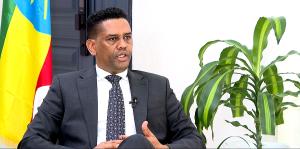
.jpg)

.jpg)
.jpg)
.png)
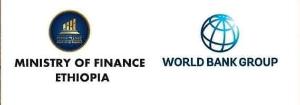

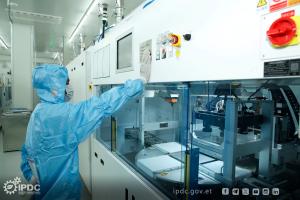
.png)
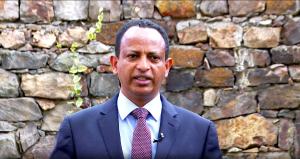
.jpg)
.png)
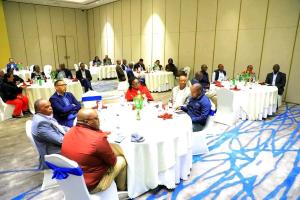
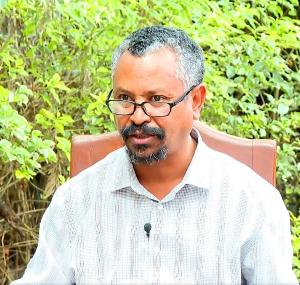
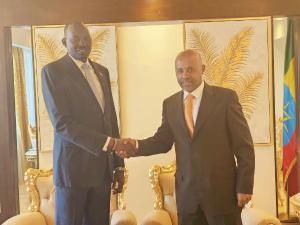
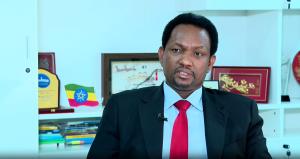
.jpg)

.png)